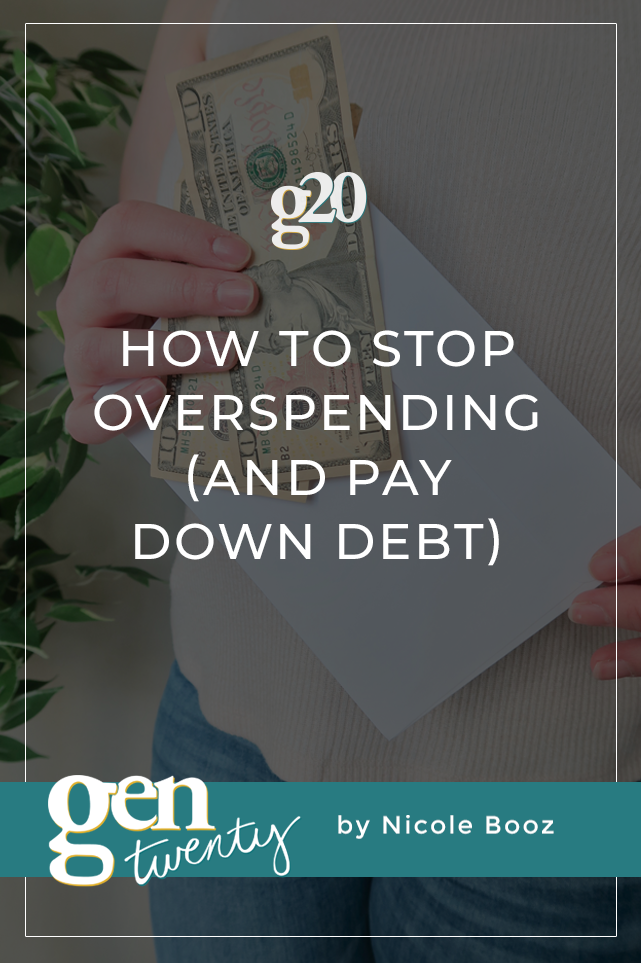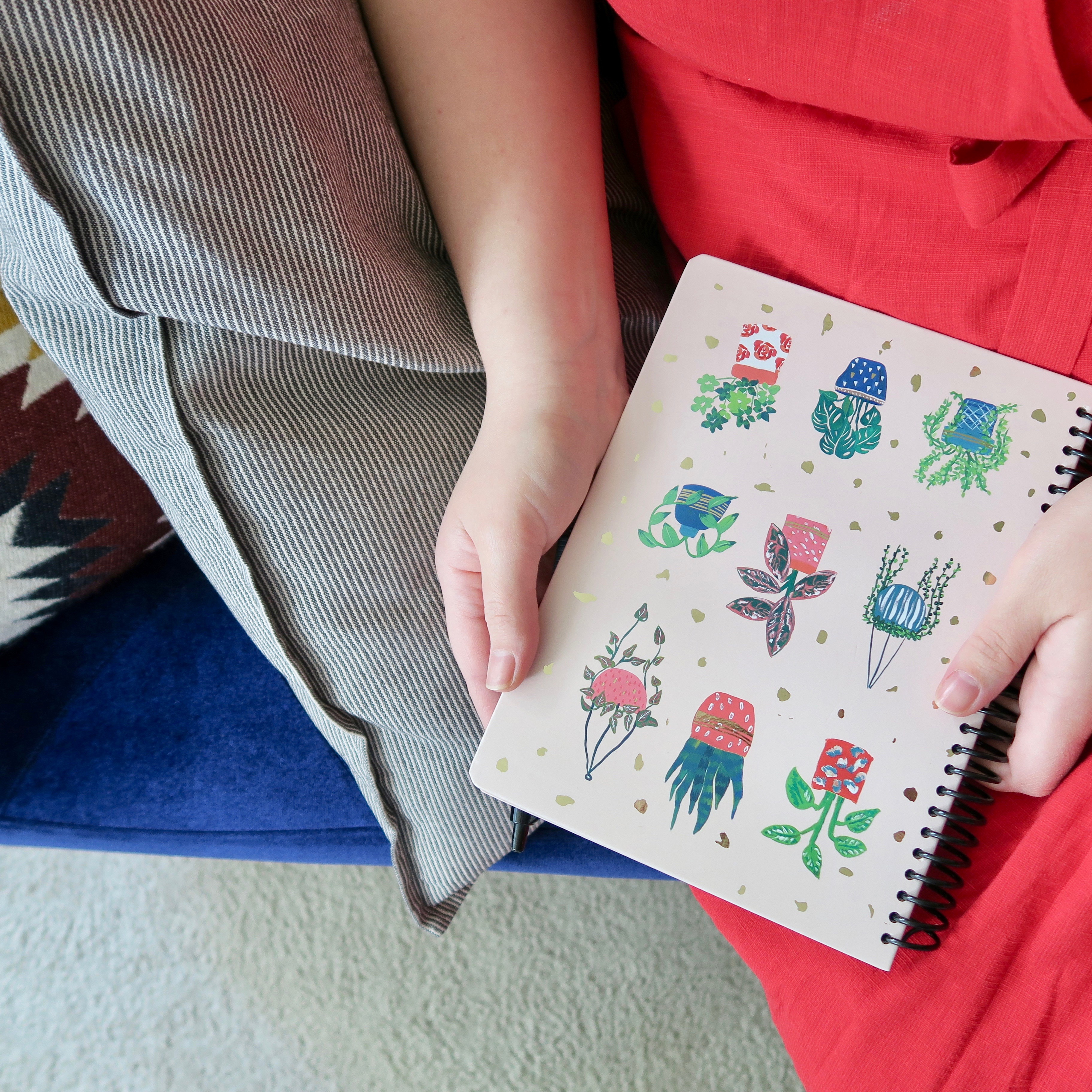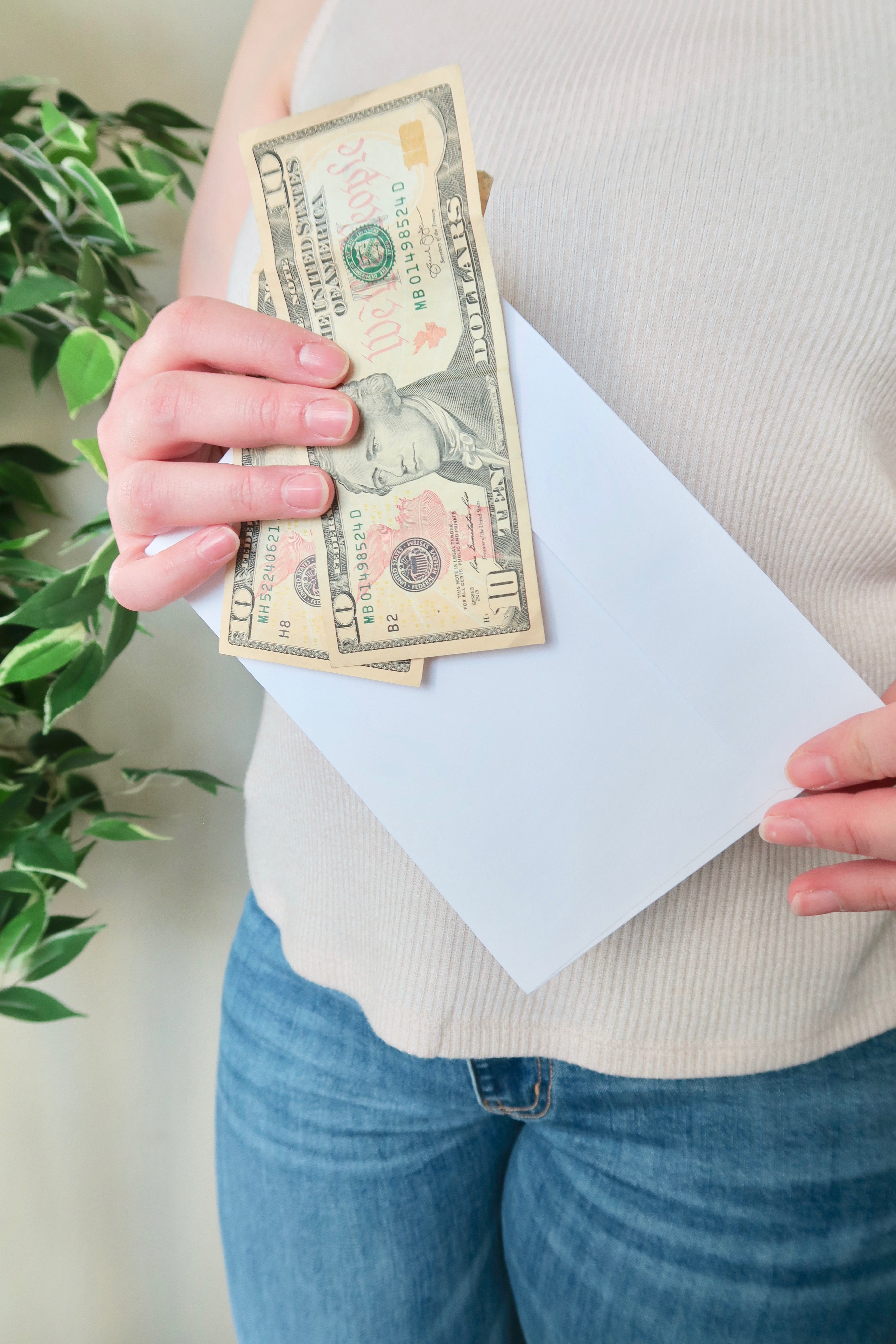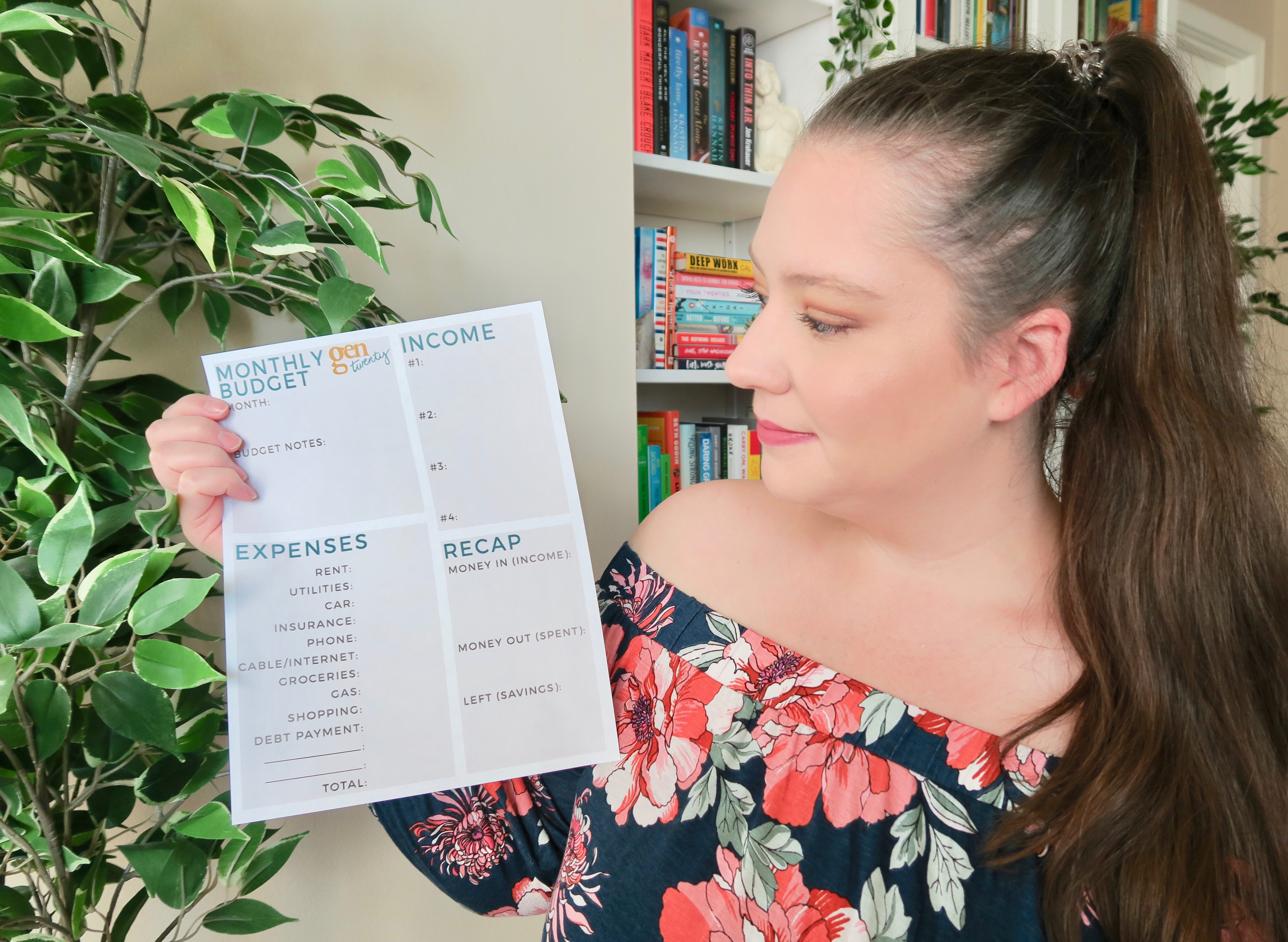This post is sponsored by Lexington Law.

If you’re reading this, the title probably caught your eye. You might be finding yourself in a cycle of constantly spending more cash than you have on hand. You might be battling credit card bills that are slowly creeping up. Or you’re ignoring them as the bills come due, promising you’ll pay them off in the future when you have a better job that makes more money.
I’ve been there before, too.
Part of being able to pay down my debt (about $25k in 18 months) was to deeply evaluate my spending habits.
Consistently overspending beyond your means can not only spend you spiraling into debt but it can also damage your credit. This can put you in tough position when it comes to buying a home or a car, finding employment, keep your credit limits low and interest rates high, and even impact your relationships.
There are many things that can impact your credit score but your utilization ratio, directly related to your debt, makes up 30% of yourFICO credit score. Your utilization ratio is the percent of credit you’re using over the credit you have available to you. If you have significant debt in comparison to your available credit, it could possibly be playing a big role in your credit score and limiting your future choices.
Below, I cover some tips that really helped me stop going over budget every month. Racking up consumer debt is a mistake I made in my early twenties that I’m glad I put a stop to early on. Taking your credit seriously is also an important lesson I learned. It’s the reason I have a credit score over 800 today. If you’ve found unfair negative items on your credit report or have questions about your unique situation, I recommend reaching out to the credit repair consultants at Lexington Law.
How To Stop Overspending (and Pay Down Debt)
1. Change your focus to using stuff up instead of buying new.
Things tend to accumulate. From makeup and beauty products to food in our pantries, it’s not uncommon (especially give then popularity of the KonMari method) to have drawers and cabinets full of unfinished products.
For myself, this year I’ve made it a goal to use up as many of these products as possible. So far, I’ve used up over $2,500 worth of beauty and bath products that were just sitting in my cabinets. This not only gave me a project to focus on but distracted me from spending unnecessary funds on things I didn’t really need, especially given my big life change this year.
You can do this with lots of things — household cleaning products, bath/shower gels and creams, food in your pantry, reading all of the books you own — there are a lot of options!

2. Every time you would whip out your credit card to buy something, pause and write it down instead.
Using the principle of delayed gratification, you can save yourself thousands per year. Instead of just buying things on a whim, keep a note in your phone or with a pen and paper of all the things you would have purchased if you’d given into temptation. These can be small things like an afternoon coffee or big things like a new phone.
You might even find that after a few days you don’t even want that item anymore! It’s likely left your mind, leaving that money in your wallet.
You can also go the extra mile here and instead of just writing it down, transfer that money to a savings account, pretending you made the purchase. At the end of the month, take the money you put in the savings account and put it towards a debt.
3. Leave your credit card at home.
When you go out, bring only cash with you. If you’re going to dinner with friends, put a $20 bill in your wallet and call it good. If that’s all you have with you, you won’t be tempted to spend any more than that.
This way you’re not denying yourself something nice — a meal out with friends, in this example. You’re getting to enjoy a nice meal with nice company without spending a ridiculous amount on one dinner.
Another tip is to split one entree with someone else or order an appetizer as your meal. My husband and I used to do this all the time for date nights when we were paying down our debt.
[Tweet “Savings tip: split one entree with someone else or order an appetizer as your meal.”]

4. Unsubscribe to sale emails.
How many times have you gotten a sale email and purchased something feeling so awesome because you got a great deal?! It’s easy to convince ourselves we need something when it’s on sale.
[Tweet “It’s easy to convince ourselves we need something when it’s on sale.”]
I’ve never written about it, but I spent a whole year only buying things on sale. It’s got me thinking that maybe I need to spend a whole year buying things *not* on sale. This way I won’t be distracted by a deal and will have to decide if something is worth it to me at full price.
5. Ask yourself why you’re spending in the first place.
When it comes to overspending, there’s often an emotional component that we overlook in the moment.
Are you treating yourself because you had a bad day at work? Are you buying something to fill a hole left by a fight with a friend? Or are you shopping hungry? Any of these factors could be influencing you to spend money when you wouldn’t otherwise.
If you’re feeling down, hungry or upset — press pause on checking out.
[Tweet “If you’re feeling down, hungry or upset — press pause on checking out.”]
6. Build a little extra into your budget.
It’s fun to go shopping for friends or let ourselves be easily influenced by things we see.
I occasionally go shopping with friends on social outings. It’s fun to take an afternoon and browse the homeware and clothing sections at Target, for example. I started giving myself a little bit of money in my budget for this activity. That way, I don’t feel bad picking up a piece or two and wreck my budget. I just try to stay under $50 or so and be mindful of this limit when checking out.

7. Don’t shop for your fantasy self.
We all have a version of a fantasy self in our heads. It’s like the hobbies and person we think we might day become even though it’s nothing like we authentically are in reality.
Maybe your fantasy self drinks a green smoothie every day, goes to yoga on Saturday mornings, and vacations in Bali. In reality, you drink coffee every day, are good with going to yoga once a month, and love spending your summer vacation on the shore with your family.
So what I’m trying to say, is that you probably don’t need another pair of yoga pants and a new blender. Buying these things aren’t going to change who you are unless you are already working to adapt those changes into your lifestyle.
Overspending can be a hard habit to break, especially if you are a chronic over-spender. By using these tips and checking in with your emotions you’ll be less likely to indulge in overspending. Not only will this keep your wallet fuller, but it will keep your savings up and hopefully have a positive impact on your credit as you also practice other good financial habits.
If you do find yourself in a tough situation with your credit, I recommend contacting the credit repair consultants at Lexington Law. You likely have options and taking steps to repair your credit now will benefit you in the future.
